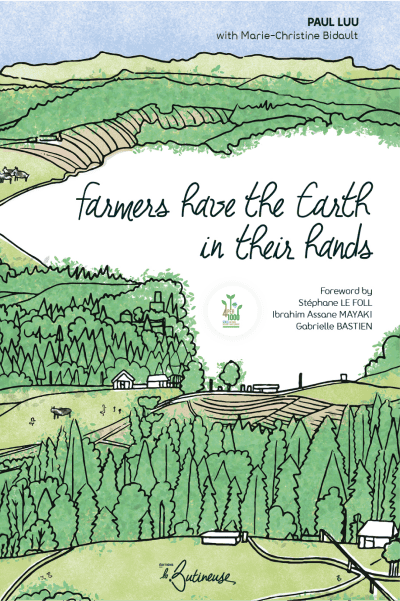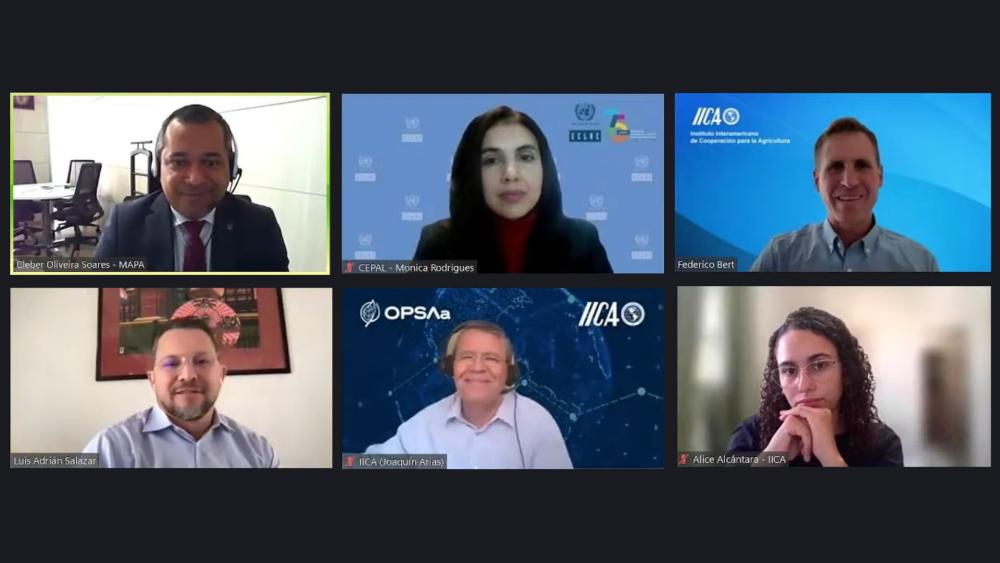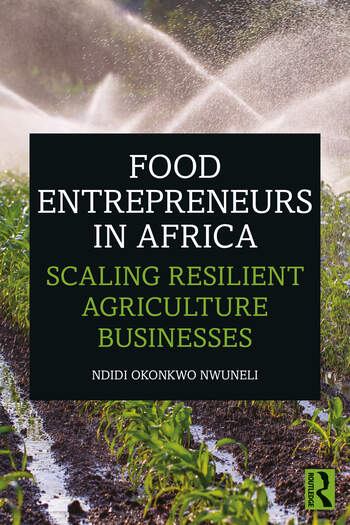24 - 26 September 2024. DeSIRA CONNECT Days: Western Africa, Central Africa & Madagascar
30 September 2024. 10:00 - 11:00 AM EDT / 14:00 GMT. Building Resilient Food Systems in Africa through Adapted Crops, Soil Health, and Value Chain Systems (VACS): Policy Priorities for Africa
- The meeting will bring together key stakeholders across the entire coffee value chain, including farmers, civil society organizations, and representatives from relevant Government Ministries, Departments, and Agencies, private actors, consumers and the development partners.
- Invited selected consortia only
- The Arab Friends of Champions 12.3 network & platform is designed to accelerate action in the Arab region towards SDG Target 12.3 — to halve food waste and reduce food loss.
- presentations from: Dima Maroun (CSO, Thriving Solutions); Dr. Haytham Riahi (Founder, Circa Biotech); Liz Goodwin (Senior Fellow, World Resources Institute)
- The recordings of past sessions are also available on the waterschools.org website
- Invited selected consortia only
- Hand International works in Kenya, Tanzania, Zimbabwe, Afghanistan to empower people, particularly women, in their economic activities which we contribute to poverty reduction.
- It brings various technical assistance work—such as regenerative agriculture—to help farmers improve their productivity and crop quality.
- Food Trails is a four-year EU-funded Horizon 2020 project, bringing together a consortium of 19 European partners, including 11 cities, 3 universities and 5 organisations.
- A new tool has been released to make emergency crop and livestock needs assessments more streamlined. Developed jointly by the Livestock Emergency Guidelines and Standards (LEGS) and the Standards for Supporting Agricultural Livelihoods in Emergencies (SEADS), the Joint Assessment Tool (JAT) integrates assessment processes for both crop and livestock production, promoting a comprehensive understanding of agricultural production and livelihoods in crisis-affected areas. Two standards in one tool
- University of Lausanne, Switzerland + “Agroecology Day for All” in Lausanne on 5 October 2024
- Organised by the African Nutrition Society and Ghana Academy of Nutrition and Dietetics
- The Global Forum for Rural Advisory Services (GFRAS) invites you to a Webinar to launch the new module on Extension Support to Climate Adaptation and Mitigation
14 to 18 October 2024 The third edition of the FAO Science and Innovation Forum (SIF 2024)
- The technical sessions at the Forum will be organized around three critical themes: Biotechnologies: Exploring the latest advancements and applications in biotechnology to enhance agricultural productivity, resilience, and sustainability
- Community-Driven Innovations: Highlighting grassroots innovations and community-led initiatives that drive local and regional agrifood systems transformation.
- Digital Agriculture: Examining the role of digital technologies, such as precision farming, Internet of Things, and Artificial Intelligence, in revolutionizing agricultural practices and improving supply chain efficiencies.
- Organized around three pillars - Global Youth Action, Science and Innovation and Hand-in-Hand Investment - the 2024 flagship event leverages the power of intergenerational collaboration, as well as partnerships and action across policy, science, innovation, education, culture and investment.
- This year, the event will also host the 2024 edition of the annual World Food Day and the High-Level Rome Water Dialogue on WASAG - The Global Framework on Water Scarcity in Agriculture, as well as the Global Family Farming Forum, ensuring even more inclusivity, dialogues and solutions for the present and future of our agrifood systems.
14 October 2024. Validating the Minimum Dietary Diversity (MDD) indicator across population groups.
Register here to join in-person (Rome). Web streaming will also be available.
14 -16 October 2024. Addis Ababa African Youth Summit on Food Systems & Agroecology 2024
- This summit is aimed at showcasing diverse solutions from African Youth to demonstrate practical ways of achieving improved livelihoods and sustainable food systems in a climate crisis.
- Thousand African Youth Summit on Food Systems and Agroecology 2024 is explicitly designed to be a “Summit of Solutions”.
- This emphasis on solutions is driven by the understanding that mere discussions and identification of challenges are insufficient to drive meaningful change.
- The summit aims to go beyond rhetoric by actively seeking innovative ideas, practical recommendations, and actionable plans to address the complex issues facing African food systems.
- How market-driven partnerships can promote biodiversity conservation while also supporting sustainable development for local populations.
- virtual event : the Summit aims to bring together African and EU researchers, academics, government officials, experts, and farmers engaged in advancing agroecological practices in Africa. The PrAEctiCe Agroecology Summit offers a chance to explore how agroecology can help to feed Africa.
- It will cover agroecological aquaculture systems’ current, emerging, and future benefits. It will also discuss the existing and developing frameworks for complying with agroecological practices to promote increased involvement between stakeholders and smallholder aquaculture producers in Africa.
- Discover practical applications of remote sensing, digital data, and GIS technologies to improve the efficiency, selection, and monitoring of sustainable smallholder aquaculture operations. The event will also discuss potential obstacles or issues that may impact the integration of aquaculture with agriculture.
21-26 October 2024. CORAF week
October 21, 2024 - November 01, 2024 Cali, Colombia. Food & Agriculture Pavilion
21 October–1 November, TBA, Colombia. UN | 2024 United Nations Biodiversity Conference (COP16)
23rd-24th October: Pre-register for the Global Bioeconomy Summit (GBS), a global & inclusive Summit bringing together bioeconomy experts to discuss sustainable solutions to global challenges. Register here.
23 -24 October 2024. Global Bioeconomy Summit (GBS)
23 - 25 October 2024. Russia africa Agri-Business expo
23 -25 October 2024. San Lorenzo - Paraguay The 10th Latin American Congress on Agroecology
- This congress will be a time to update on the main debates that are being held in the region for the advancement of Agroecology in the territories.
- Introductory remarks by PAFO. Panel: ROPPA/EAFF; PASAE; University of Nairobi; CSIR-CRI Ghana; and Director of Mechanization, Nigeria.
- The Webinars and Discussion Forums are being organized by the interim F-SAMA steering committee,comprised of AUC, FAO &ACT Network: For more information, contact: • F-SAMA - AfricaMechanize Secretariat; Email: info@africamechanize.org
- Webinar discussing findings from the new Lancet Global Health study that estimates over 5 billion people globally are not consuming adequate levels of essential micronutrients in their diet.
- Ty Beal, Global Alliance for Improved Nutrition (GAIN)
- Anna Lartey, University of Ghana
- Germana Leyna, Tanzania Food & Nutrition Centre
- Simone Passarelli, Office of Global Food Security, U.S. Mission to the United Nations Agencies in Rome
- Masresha Tessema, Ethiopian Public Health Institute
- This webinar shall present an innovative, market-focused model called Demand-Led Seed Systems (DLSS) approach, developed by the Pan-Africa Bean Research Alliance (PABRA) (pabra-africa.org), that has been mainstreamed by the CGIAR Research Initiative on Seed Equal on legumes.
- This practical tool supports countries in integrating agroecological principles and practices into their respective National Biodiversity Strategies and Actions Plans (NBSAPs).
- Policymakers, researchers, and stakeholders will explore the role of local governments, power structures, and inclusive policies to ensure access to adequate food and urban services amidst challenges like climate change, food insecurity, increasing urban populations, conflicts and raising inequalities.
- farmer-led networks from Asia, Africa, and Latin America about their experience revitalizing fresh food markets and strengthening links among farmers, consumers, and public officials.
- learn about the main findings of the "Food from Somewhere" report on the status of territorial markets launched by The International Panel of Experts on Sustainable Food Systems (IPES-Food).
- this event will explore the growing potential of biopesticides in agriculture
- Publication: Food systems transformation through dialogues
4–8 November 2024. Lisbon, TROPICAL SUMMIT - Foreseeing Answers to Global Challenges
Tropical Summit: A unique multi-actor forum to achieve the 2030 Agenda through triangular cooperation.
- 5 - 6 November 2024. 16.30 - 18.00 CET. FARA side event Catalyzing agro-ecological transitions in the tropics in the context of climate change
11-13 November 2025, Brisbane. TropAg 2025,
11–22 November 2024, Baku, Azerbaijan 2024 United Nations Climate Change Conference (COP29)
12 au 14 novembre au Palm Beach hôtel à Saly (Sénégal). (Agro)pastoralism in Africa: Current Dynamics and Perspectives, in preparation for the International Year of Rangelands and Pastoralists (IYRP 2026)
19-22 November 2024. Hammamet Tunisia. Aquaculture Africa Conference 2024 (AFRAQ24)
20 November 2024. 1:30 to 5:30 pm. Soil quality – Towards an indicator system for public policy - Restitution conference
26-28 November 2024 in Dakar, Senegal. ANAPRI Stakeholders Conference scheduled
25-28 November 2024. Kigali, Rwanda. SUN Movement Global Gathering 2024
- The SUN Movement Global Gathering is the Movement’s flagship event and one of the largest international gatherings within the nutrition community.
26 to 27 November 2024 SFN+ Hybrid Conference: Innovations for sustainable and resilient agri-food systems
- This hybrid conference will provide an opportunity to explore the latest innovations in the agri-food systems within the UK and beyond (Africa and Asia); showcase the success of its funded research projects, present the latest knowledge exchange initiatives of its expert working groups and provide networking opportunities for leading food researchers and industry experts.
- This event is organised by the Brussels-based FiBL Europe together with FiBL Switzerland, FiBL Germany, FiBL Austria, FiBL France and the Hungarian ÖMKi.
28 November 2024. Sustainable Agricultural Mechanization in Africa
- Annual Summary Paper to be prepared by AfricaMechanize Secretariat.
- Presented by ACT iSAMAP Chair.
- The Webinars and Discussion Forums are being organized by the interim F-SAMA steering committee,comprised of AUC, FAO &ACT Network: For more information, contact: • F-SAMA - AfricaMechanize Secretariat; Email: info@africamechanize.org
30 November - 6 December. Pre-Conferences, Tours, Organic World Congress, and the General Assembly of IFOAM – Organics International
2–13 December 2024, Riyadh, Saudi Arabia UN | UNCCD COP16
8 - 11 December 2024. The AAS 15th General Assembly & Scientific Conference, themed "Empowering and Advancing Africa’s Scientific Enterprise,"
09 – 12 December 2024. AAS Scientific Conference and General Assembly
25 February - 1 March 2025. Corvallis, Oregon. Organic Seed Alliance conference
- to be held Hydrid: In-person and virtual.
- Call for 2025 Conference proposals is open until July 19 and is available at this link
- Centre for Rural Development/Humboldt University Berlin
- This training will delve into the unique challenges and opportunities of transforming food systems in the Global South, offering practical insights and strategic guidance.
- Aim: Highlight the main challenges in the current food system(s), and co-develop practical solutions and action plans based on the objectives and local realities of the participants.
- Target group : Urban planners, Project Manager in International Development NGOs, Food Value Chain Experts.
9 and 13 June 2025. African Conference on Agricultural Technologies (ACAT) Kigali, Rwanda,














